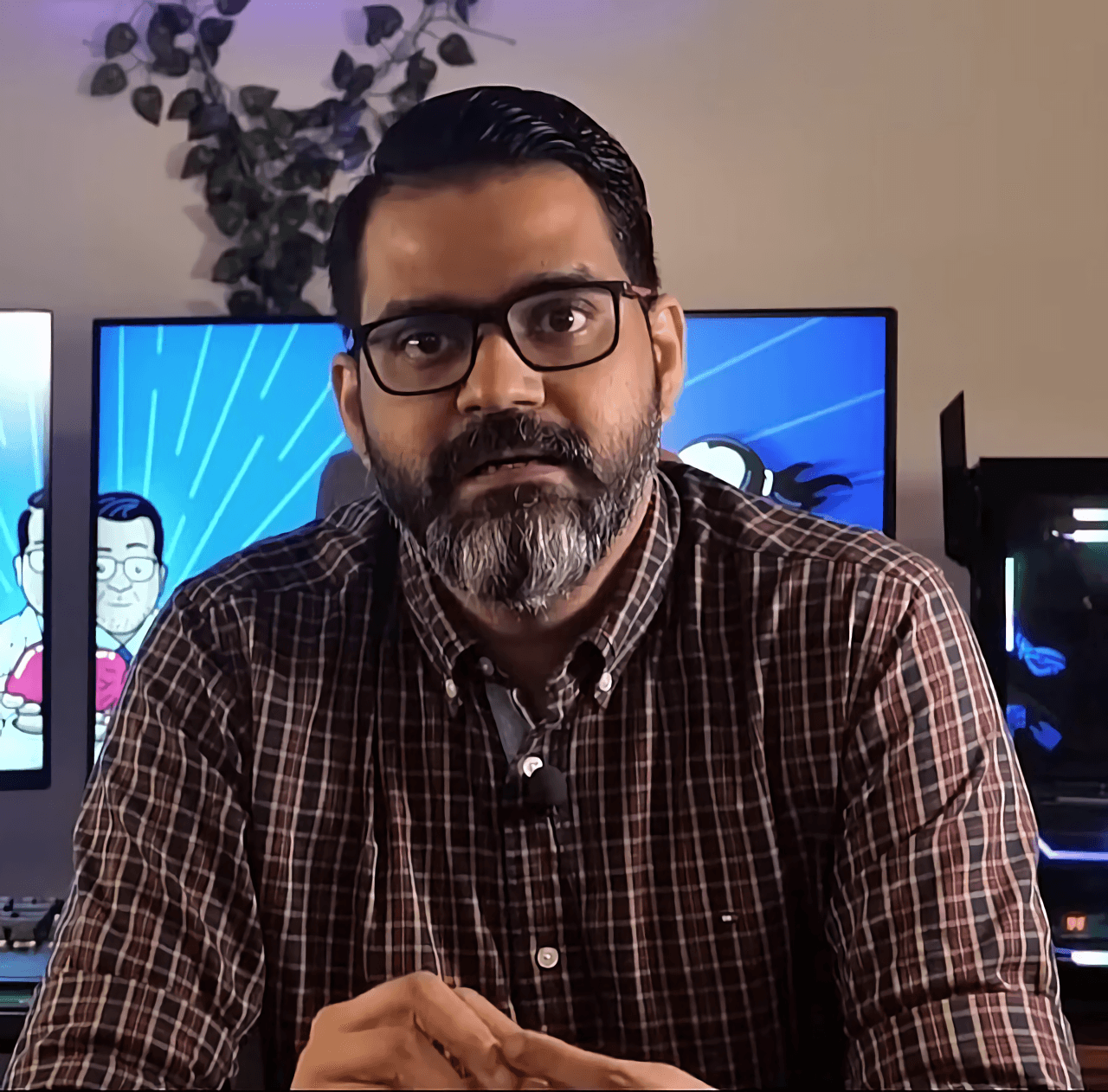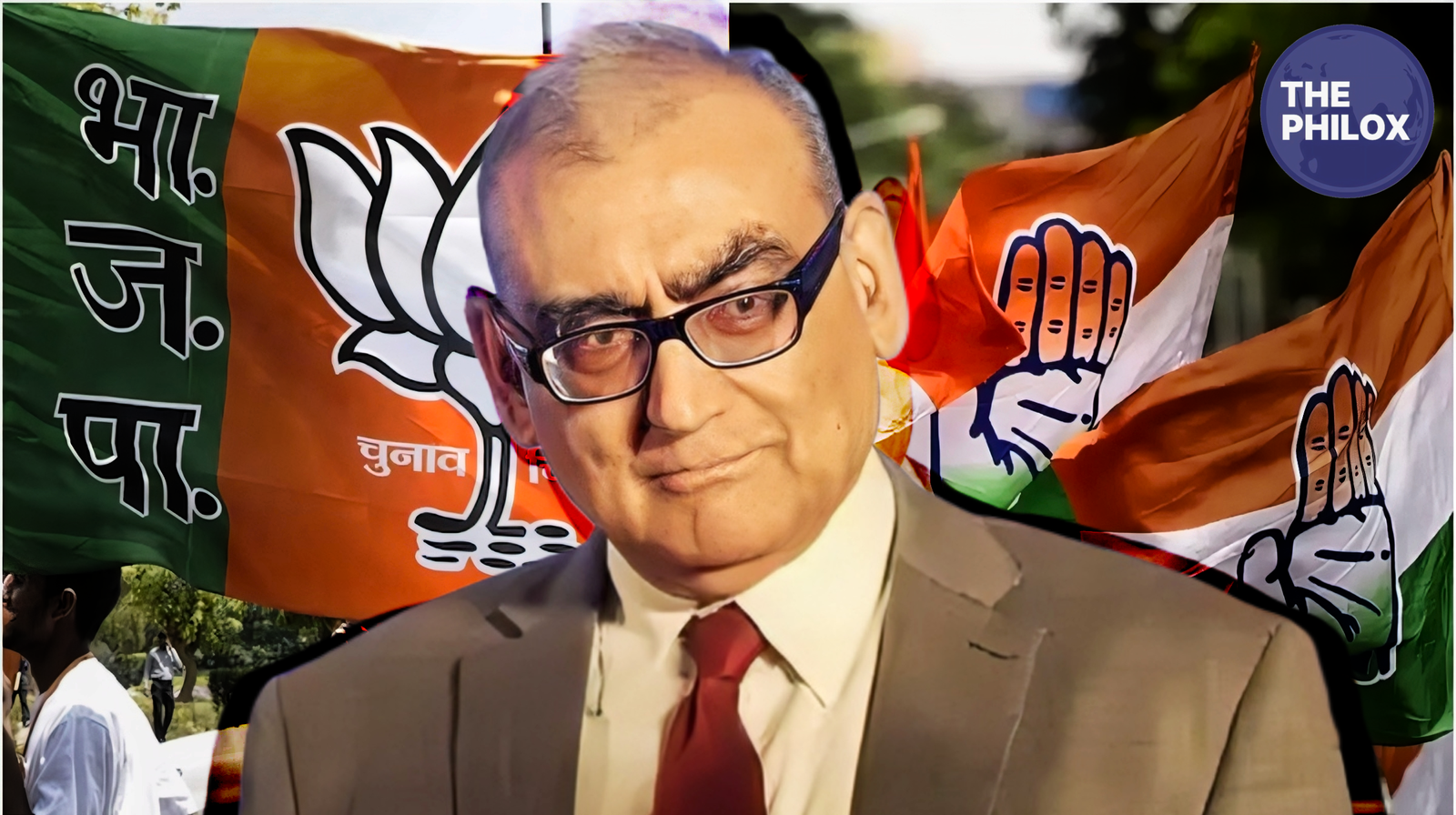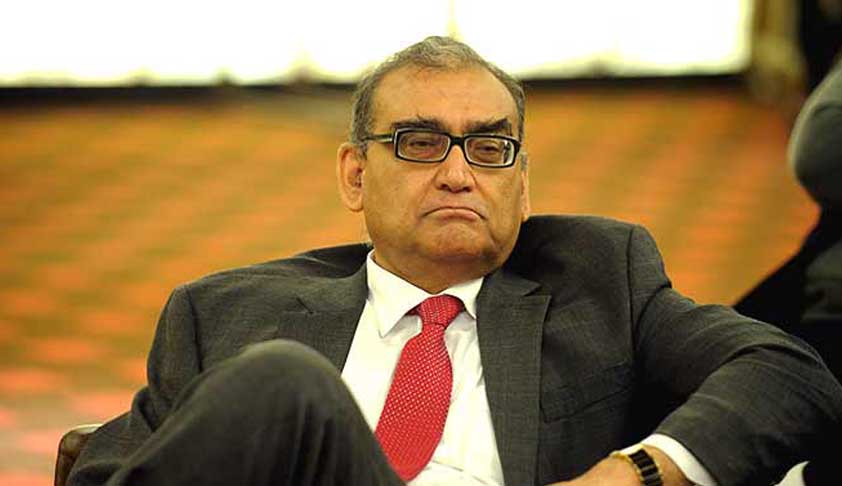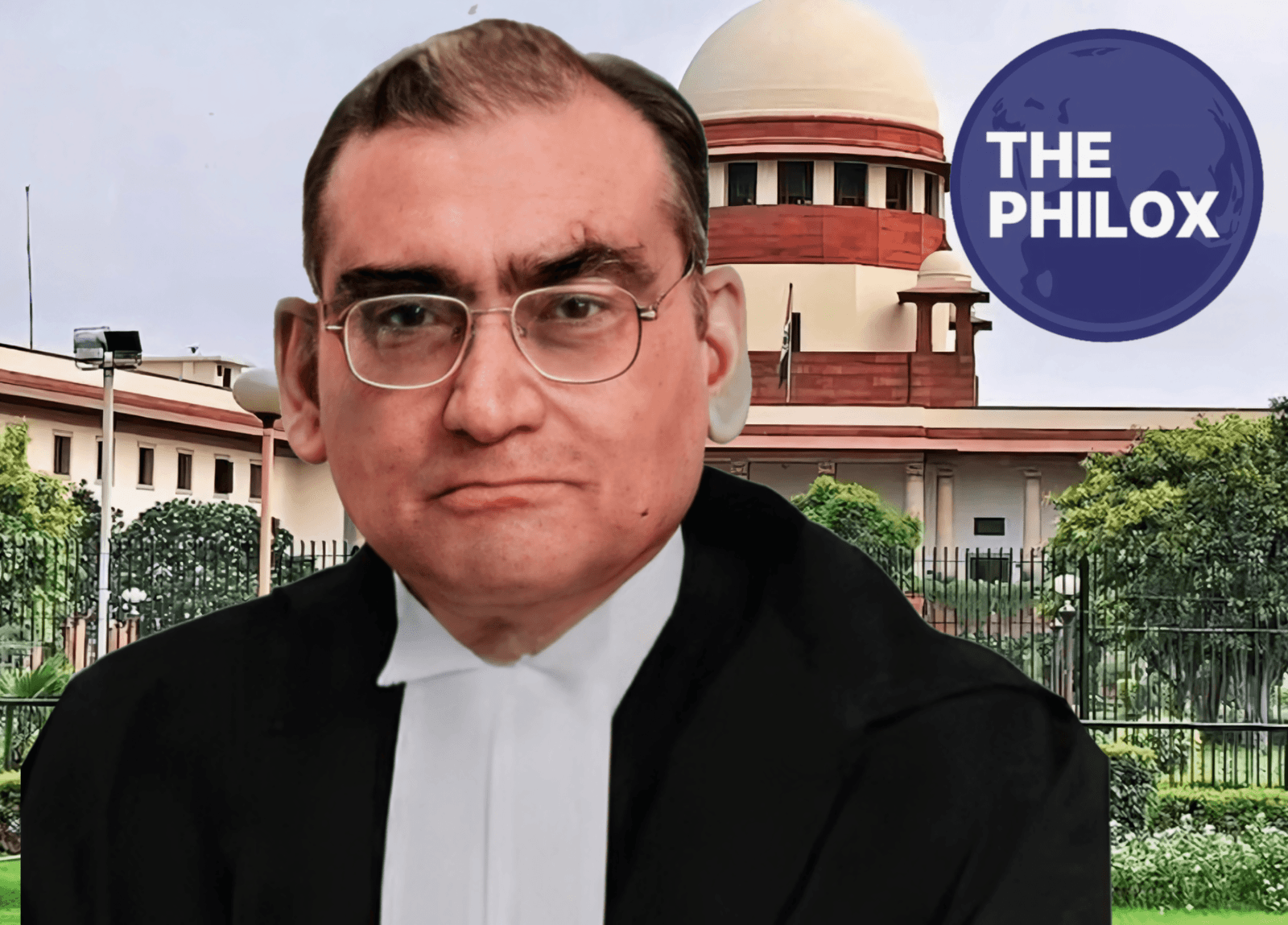Dr. Cyriac Abby Philips, better known as “The Liver Doc,” is an Indian hepatologist and clinician-scientist who has earned great repute for his evidence-based medicine.
He is a leading liver specialist who has spent his career treating complex liver diseases, but his influence goes beyond clinical practice.
His advocacy for scientifically backed treatments and his outspoken criticism of alternative medicine have made him a controversial figure in the Indian medical community.
Although his work has been responsible for raising awareness about better health in the liver, this also earned him quite some backlash, especially about his critiques against Ayurveda and homeopathy, two commonly practiced forms of traditional medicine in India.
His is the story of the multifaceted challenges doctors meet while advocating for evidence-based medicine in a landscape in which traditional practices hold both significant cultural and political power.
This article discusses the obstacles that Dr. Philips faces due to his efforts to vindicate scientific integrity, an analysis of the controversy attached to his criticisms, repercussions from proponents of alternative medical practices, and the challenges that medical professionals face to defend evidence-based practices.
Role of Dr. Cyriac Abby Philips for the Medical Profession
He is one of the renowned scientists who have worked much in the area of research of liver diseases, mainly on hepatitis and cirrhosis. He is a senior consultant at the high-reputed Rajagiri Hospital in Kochi.
His activities have been on the both clinical and academic planes. Dr. Philips always advocated the following of the medical science and advocated only evidence-based treatments and interventions.
Aside from his work as a clinician, Dr. Philips has also made a mark as an advocate for evidence-based medicine. His stance on ensuring that patients have scientifically validated treatments has also led him to be vociferous against medical practices that he believes endanger the public.
A number of different concerns have been raised by him within his mission, including the safety of using alternative treatments to treat illnesses, especially with regard to those that damage the liver, an indispensable organ in the human system that is vulnerable to specific herbs, supplements, or practices.
Criticism towards Ayurveda and Homeopathy
One of the most significant areas of debate that Dr. Philips faces is criticism of Ayurveda and homeopathy. Ayurveda, an ancient form of Indian medicine, is an old system deeply rooted in Indian culture and medicine.
So popular was Ayurveda that even today it was criticized, mainly for concerns over its safety and the efficacy of its treatments.
Ayurvedic products are a cause of worry among patients because, according to liver specialist Dr. Philips, it sometimes contains harmful chemicals in the form of heavy metals such as lead, mercury, and arsenic, which can be absorbed in the liver, resulting in severe damage, or sometimes even liver failure.
Besides Ayurveda, Dr. Philips has also expressed his concerns over homeopathy, an alternative system of medicine that uses highly diluted substances to treat illnesses.
He has criticized the fact that there is no scientific evidence to support the treatment efficacy of homeopathy and that it can delay the patients from getting proper medical care.
Homeopathy has been a subject of debate in the medical community for years, with many doctors, including Dr. Philips, stressing that its reliance on unproven methods can be dangerous, particularly when it leads patients to forego proven medical treatments in favor of unscientific alternatives.
The Backlash Dr. Philips Faced
Dr. Philips’s stern opposition to Ayurveda and homeopathy has earned him trouble. His words have stoked fierce repercussions from people who support Ayurveda and homeopathy, from some in the medical world as well.
The criticisms have been addressed with a public denouncing and taking legal action as well.
In 2021, the Ministry of AYUSH, responsible for administering traditional medicine at the country level, in India had threatened to drag Dr. Philips to law. The Ministry issued a warning against him for allegedly “denigrating” Ayurveda.
The accusation was based on Dr. Philips’s public statements about the potential harms of Ayurvedic treatments and his belief that many Ayurvedic remedies were unscientific and could contribute to liver damage.
The Ministry’s caution highlighted the tension between the modern medical practitioners, who support evidence-based treatment, and the proponents of traditional medicine, who believe that such criticisms run down India’s cultural heritage and its medical traditions.
The most significant controversy surrounding Dr. Philips is when the Himalaya Wellness Company, one of the leading players in the Ayurvedic and herbal supplement industry, sued him for defamation in 2023.
Dr. Philips had criticized a popular liver health product of the company, Liv.52, which he believed, based on his research and clinical observations, could lead to liver toxicity.
As a result of the legal case, a civil court in Bengaluru issued an interim injunction against Dr. Philips, which led to the suspension of his X (formerly Twitter) account in India.
It underlined a rising cleavage of opinion between scientific grounding of medicine and those large companies touting Ayurvedic and herbal medicines often with an eye shut for scientific authentication.
This lawsuit illustrates the danger doctors like Dr. Philips are in when they publicly raise the safety concerns of very widely used alternative medicines.
As Dr. Philips deals with the threat of litigation and public backlash, he finds himself navigating a rather difficult landscape where the medical and legal systems intersect, often obscuring the boundaries between cultural respect for traditional medicine and scientific evidence.
Public Controversies Involving Celebrities
Dr. Philips has been confronted with not only professional and legal opposition but also public controversy regarding celebrities.
There are numerous celebrities, especially from the film world in India, who have promoted alternative health practices for their large following on social media.
Their endorsement impacts public opinion and behavior so that most of the population looks to receive unproven treatments.
For example, in 2024, actress Nayanthara posted on Instagram about the health benefits of hibiscus tea, claiming it could help manage a range of health issues, including diabetes, high blood pressure, and cholesterol. Dr. Philips, who is well-known for combating health misinformation, immediately criticized the claims, pointing out that there was no scientific evidence to support such sweeping health benefits.
His criticism led Nayanthara to remove the post, but the incident fueled an ongoing debate about the role of celebrities in promoting unproven health practices.
Similarly, actress Samantha Ruth Prabhu’s endorsement of hydrogen peroxide nebulization for treating viral infections became another flashpoint. Dr. Philips called this practice “dangerous” and unproven, highlighting the potential risks of using such treatments without proper medical oversight.
Samantha defended her post by stating that it was based on her personal experience, but the episode highlighted the tension between personal health choices and public responsibility.
The fact that such celebrities give their support to these alternative treatments puts Dr. Philips in an awkward position where he has to oppose influential persons in public.
This again is fraught with serious personal and professional risk. While controversy follows Dr. Philips, he stays focused on his goal of educating people about the possible dangers of unproven treatments and the need for scientifically verified medical practices.
Fear Among Medical Professionals to Criticize Alternative Medicine
The biggest challenge Dr. Philips has encountered is the fear that his outspoken criticism of alternative medicine has instilled in other medical professionals. The fear of backlash from the public, legal action, and professional ostracism has made many doctors hesitant to speak out against popular traditional practices.
This apprehension is particularly evident in a country like India, where Ayurveda, homeopathy, and other alternative treatments are deeply ingrained in the culture.
Doctors who are critical of alternative medicine generally sit in a precarious position from both professional ethics and from the public.
The willingness not to speak out into public about the dangers in this practice often leads one into missing opportunities to secure patient protection from harm; and this creates an opportunity space for unproven treatment to thrive, leaving well-proven alternatives languishing in the background.
Dr. Cyriac Abby Philips’s advocacy for evidence-based medicine has made him a pivotal figure in the ongoing debate about the role of traditional medicine in India.
His willingness to challenge popular practices, including Ayurveda and homeopathy, has made him a target of significant backlash, both from the public and the legal system. However, his work is crucial in raising awareness about the potential dangers of unproven treatments, especially in relation to liver health.
The personal experiences of Dr. Philips reflect the broader challenges facing many medical professionals who have to stand up for scientific integrity in a landscape of traditional and alternative practices.
The controversies surrounding his critique, especially those involving celebrities and legal threats, thus highlight the need to further promote evidence-based medicine amid the complex cultural and political dynamics of healthcare in India.
Ultimately, Dr. Philips’s courage to speak out serves as an inspiration to other doctors, encouraging them to prioritize patient safety and scientific rigor, even in the face of significant opposition.








One thought on “How Difficult it is to be The Liver Doc aka Dr Cyriac Abby Philips”